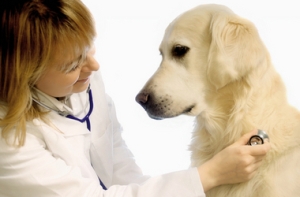Dog arthritis and diseases like cancer, are only a couple of the many concerns when it comes to senior pets. Just like humans, pets changes as he or she grows older. Since dogs have been there for humans as loyal companions, it is only fitting that they are cared for and understood during their twilight years.

Symptoms of old age are not so noticeable on pets, particularly dogs. Owners should be very receptive and pay close attention to detect them as early as possible. Regular vet visits would help in determining dogs are suffering from any ailments.
What to Expect
Different pets age at different times. It is important to note a dog’s exact age to know when he might qualify as a ‘senior’. Bigger dogs usually age faster than smaller ones; but most canines are considered old by the time they are seven to ten years old. By then, the pet’s needs and behaviors are expected to change.
- Health issues – the most common being rheumatoid arthritis – will start to manifest. Other problems that might crop up are diabetes and liver/kidney disease. Joints and muscle pains will seem to feel worse if the dog has hip dysplasia.
- There’s a possibility that pets will become senile. If other issues are ruled out, canines can suffer cognitive dysfunction. Similar to a human’s Alzheimer’s, dogs can suffer from memory loss and learning deficits.
- Appetite and activity habits will change. Aging pets will slow down and will not be as active as before. Others will also experience mood swings by being irritable at some points.

Caring for Seniors
Regular wellness check-ups with vets is a good way to monitor senior pets’ conditions. Experts suggest one every six months to recognize possible health risks and promote longevity. During these exams, owners will be asked questions pertaining to the dog’s medical history. Be honest when explaining if dogs have been acting differently lately.
Meanwhile, vets will be doing a series of diagnostic tests such as urinalysis, fecal analysis, and blood counts. They will also check for any physical signs or symptoms of common old age problems. It’s vital to have these tests done to frequently be aware of a pet’s health status.
Learn to adjust a canine’s diet and physical activity. Ask the vet for any recommendations on supplements or senior dog food formulas. Feed dogs with a healthy balanced diet containing less fat and just enough protein. Since they might be experiencing digestive problems already, frequent feeding of smaller, manageable meals could be beneficial.
Ensure that the home is also comfortable for aging pets. They can’t control their body temperatures as well as they used to; so it’s important to keep them warm and pleasant. Dogs with arthritis will require more attention. Have a built-in ramp if possible so they won’t need to put too much pressure on their joints when going up or down the stairs.
It won’t be easy taking care of older pets, but staying together would help keep them happy no matter the obstacle.
One thought on “Handling Older Pets: Proper Care & Expectations”